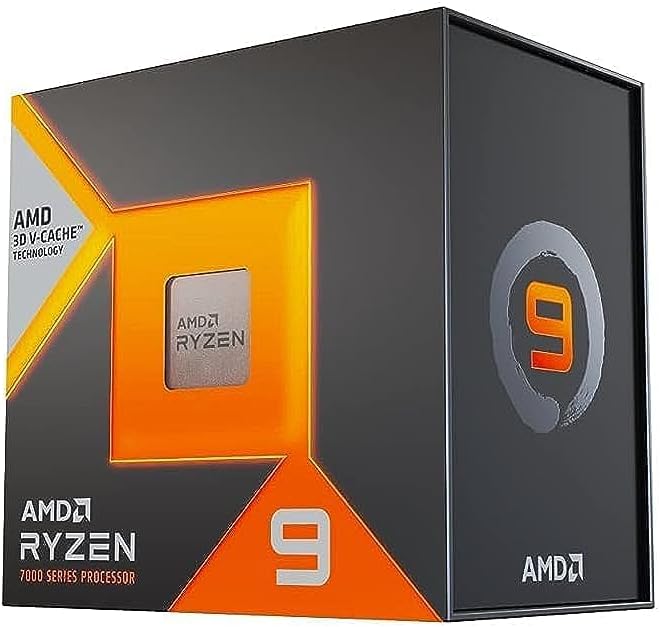About this deal
Only fusing the SRAM onto one CCD also reduces manufacturing costs, as the hybrid bonding process and additional chiplet make this an expensive technology. AMD also says that using two V-Cache chiplets doesn’t provide enough performance uplift to justify the extra costs. My PC runs every game that I play without issues. And with the recent GPU upgrade I'll be happy for another year or so and will upgrade when needed. When trying to come to an overall assessment of these chips' relative performance, it's better to look at the measurable performance gains between chips across different tests. This makes for a much more sensible average when all is said and done than averaging absolute scores where one CPU test with one very large result can badly skew a final average. Gaming performance measures how well the processor calculates gaming operations like in-game physics by running several games' integrated benchmark tools like Returnal, Total War: Warhammer III, and F1 2022. In all cases, I run the benchmarks on the lowest graphics settings available at 1080p and using the most powerful graphics card I have available (in this case, an Nvidia RTX 4090) and with 32GB DDR5 RAM to isolate the actual CPU operations I am testing without having to worry about inteference from excessive memory or graphics management. The Ryzen 9 7950X3D pretty much matches the 7950X in Blender and Adobe Photoshop and Adobe Premiere tests, though it lags a bit in VRay 5 (though not by that much). Where it really shines though is with HandBrake 1.6. This is one of the creative tests we use where we get to measure it's true real-world performance on a creative workload, especially one that is highly CPU dependent.
AMD's X670E, X670, B650E and B650 motherboards all support Ryzen 7000 out of the box. X670E offers PCIe 5.0 throughout, X670 offers PCIe 5.0 for storage and graphics, and B650 offers PCIe 5.0 for storage only. In general, as you progress from X670E to B650, expect fewer features, fewer PCIe lanes and lower prices - although no doubt we'll see cheaper X670E and premium B650 boards that will blur the lines between the four different chipsets. X670 and X670E debut in September, while B650 and B650E arrive in October. Anandtech has a great article that goes more into depth on the differences between the various chipsets. What memory is best for Ryzen 7000? We've already tested the Ryzen 9 7950X3D and named it the fastest gaming CPU, while the 7900X3D hasn't yet entered the DF labs but is another strong option at a lower price point. You can refer to the spec table below to see how the full Ryzen 7000 lineup compares. Note that UK prices weren't included in the press release we received, but we're following up with AMD about this and will add this information if we get it.And this test highlights that even at 1440p the extra L3 cache of the 7950X3D tangibly makes a difference to the gaming performance of the system at the highest graphical presets. But, as always, at 4K it's all about the GPU. Metro is the only benchmark that displays some difference between the three chips attached to the RTX 4090, and then that's more down to some vagaries in optimisation and drivers. When it comes to the synthetic benchmarks, there's very little difference between the 7950X3D and the 7950X. Both chips are phenomenal multitaskers, and though the 7950X has consistently stronger single core scores than the 7950X3D, the 7950X3D performs better with multi core performance than its non-3D V-Cache counterpart.
Having the on-chip integrated graphics present is highly useful for troubleshooting and, if you aren’t going to run games, it can save you from having to buy a display adapter, which cuts costs. The IGP that AMD opted to use on its processors, however, is relatively weak. The last-gen Ryzen 7 5700G has the fastest IGP of any desktop CPU, and while we don’t necessarily need that much performance in every desktop CPU, it’s too bad AMD opted for as weak an IGP as it did.On the other hand, when a game like Total War: Warhammer III is running, energy efficiency on the 13900K goes right out the window and you start getting power draw above 330W just for the processor. This allows the 13900K to eke out up to 68 more fps than the 7950X3D (or 532 minimum fps for the 13900K to the 7950X3D's 464 minimum fps), but it literally needs almost 2.5 times as much power to accomplish this. The cache clearly does not help enough to give the Ryzen 9 7950X3D the performance advantage in any other CPU test in our suite. At the same time, its lower TDP and heat limit cause the 7950X3D to operate a bit slower and perform worse in almost every test except that one. The Ryzen 9 7950X is slightly faster in many of these tests, but, considering how much cheaper that chip is at list price, it’s a bit of a no-brainer which is the better value in this scenario. PlaneInTheSky said:The cons just weigh too heavy for me to even consider the CPU or the AM5 platform.
Related:
 Great Deal
Great Deal 